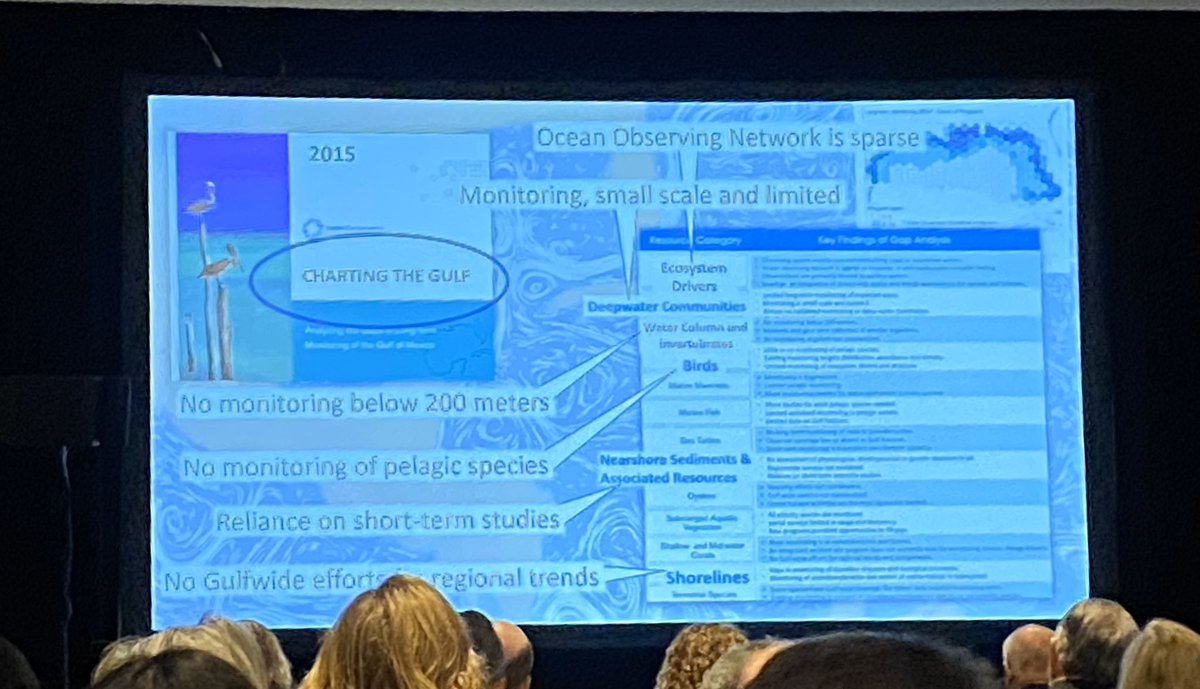
Chris Robbins
@csraustin
ID: 37337662
03-05-2009 02:00:24
81 Tweet
35 Followers
8 Following






The research community reflects on 10 years of oil spill research and leasons learned this week in Tampa. Stay tuned Ocean Conservancy #DeepwaterHorizon

Oil spill research is directly applicable to tracking other pressing ocean issues such as plastics, red tides and sargassum blooms, Tamay Ozgolman. Ocean Conservancy #DeepwaterHorizon

The BP oil disaster shuffled the microbial community deck, the ecosystem consequences of which for the Gulf of Mexico might not be known for decades, Mandy Joye Ocean Conservancy GulfSciConference #DeepwaterHorizon

Thank you Larry McKinney, Chair of the GoMOSES Executive Committee, for the shout out: Ocean Conservancy has contributed to Gulf restoration through its science products, including Charting the Gulf. Ocean Conservancy #DeepwaterHorizon GulfSciConference


All fish populations in the open ocean declined up to 75 percent following the BP oil disaster. Lantern fishes decreased up to 89 percent. Tracy Sutton, NOVA SE Univ, Ocean Conservancy #DeepwaterHorizon GulfSciConference

Red snapper in eastern Gulf declined following BP oil spill, driven by low recruitment. This is correlated with the disaster, but causation is less clear. Ocean Conservancy GulfSciConference #DeepwaterHorizon

Legacy of an oil disaster on Florida Panhandle beach coated with oil likely from 2010 BP oil spill and resuspended from seafloor by Hurricane Sally. #BPOilDisasterLegacy Ocean Conservancy weartv.com/news/local/mor…




Oil development in the Big Cypress National Preserve is a bad idea that threatens the Everglades, the quality and quantity of water that flows through Everglades to the coast and indigenous cultural rights. #EVCO22 TeamFrankOcean

Sink or Store - Collapse of Everglades peat soils due to sea level rise and saltwater intrusion threatens to convert an important carbon sink into a carbon source. #EVCO22 #EvergladesCarbonSink TeamFrankOcean

Nearly 3.5 billion metric tonnes of CO2 - more than half of U.S. 2019 emissions- have been lost to the atmosphere due to the loss of Everglades peat soil exposed to drought and saltwater intrusion. #EVCO22 #RehydrateTheEverglades TeamFrankOcean
